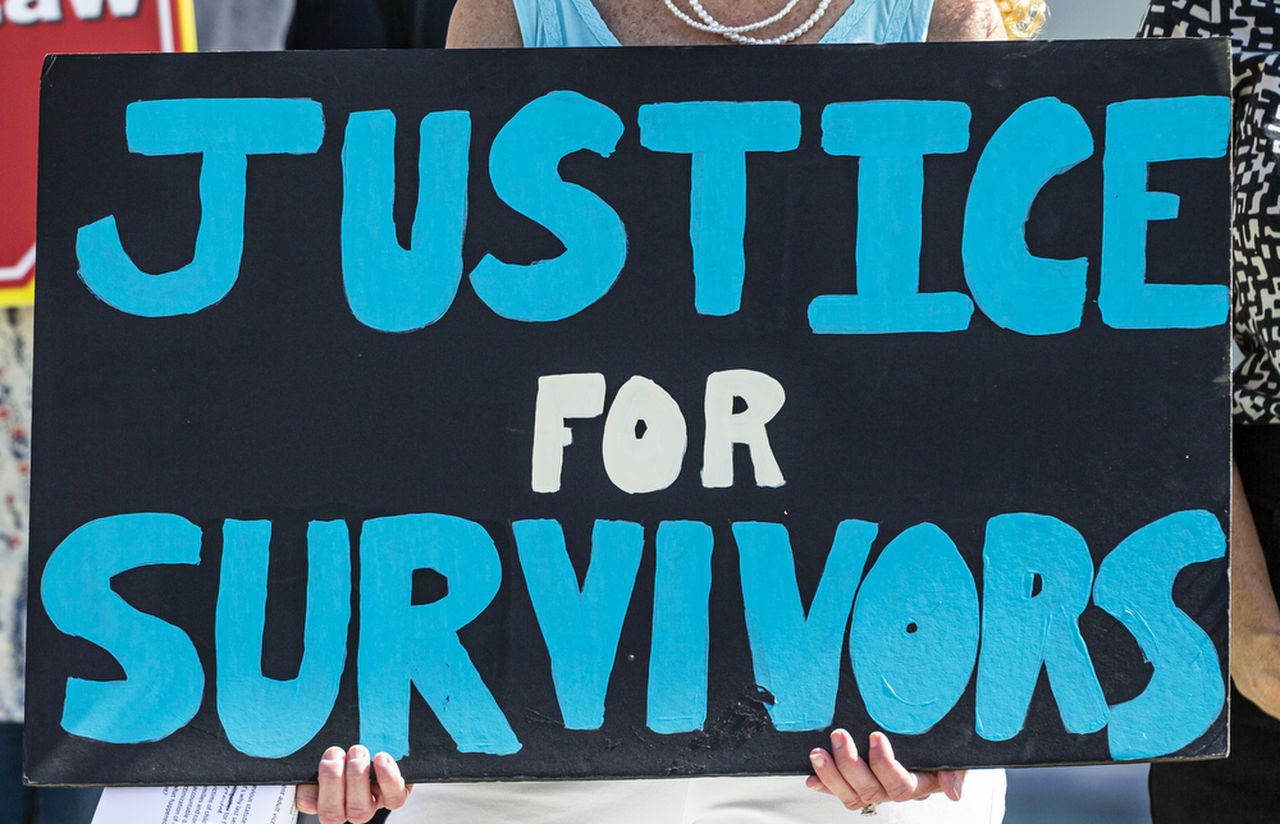Guest opinion: It’s time to pass the Alabama Justice for Child Sex Abuse Victim Act
This is a guest opinion column
You were our coaches, teachers, Boy Scout leaders, preachers, future politicians. You were neighbors, family friends, family members, always charming and trusted with our care. You took us on detours after practice on the way home, you snuck us into empty classrooms, equipment rooms, and offices on school campus. You found ways into our tents on camp outs and our bedrooms and basements at home. You cruised the malls where we spent hours shopping at The Limited and hanging out at the food court. You groomed us. You targeted us. You sexually assaulted us.
You were the exception to the many fine adults among us, but you sentenced us to a lifetime of damage.
Our parents were hard working, divorced, single, widowed, distracted. Some were alcoholic or workaholics. Others sick or dying of cancer.
We were good students and bad students. Star athletes and musicians. Geeks and outcasts. Awkward and immature. Confused and scared and captivated, we were vulnerable and unsupervised. We thought we could handle our secret and hide our shame. Some of us spoke up at the time. Some of us have only spoken up recently. Some of us never have and never will. We have all suffered in silence. We have all blamed ourselves.
Some of us went to the district attorney shortly after graduating high school. It was already too late according to the law. There’s an expiration date on accountability but no expiration date on trauma. We have searched a lifetime for justice, a lifetime trying to understand what happened and why.
We have become overfunctioning adults and nonfunctioning adults or somewhere in between. We are always haunted by what happened to us as children and minors by those we trusted. Some of us could afford mental health help. Others committed suicide. We have struggled with jobs, intimacy, nightmares, and anxiety. We are hypervigilant with our children.
The schools and organizations and churches knew what the predators were doing when parents complained, and terrified children asked for help. Headmasters, scoutmasters, and bishops passed the trash, covered up this scandal. The men in charge did not protect us. The women in charge became complicit. No one went to the police. The institutions circled the wagons, protected the bottom line, and buried the truth. They crippled an entire generation of women and men.
Those were the seventies, you say. (Or the fifties or sixties or eighties or nineties) That’s how it was back then you say. You can’t apply today’s morality to the past when things were different you say. Or you insist he was such a great teacher or coach or boy scout leader. Such an inspiring priest or politician today. He never abused me you say or look how much good he has done. You can’t destroy him now. Besides, weren’t those girls throwing themselves at him? You know how teenage girls are. And as far as the boys, that’s not something we like to talk about.
Today these same institutions scramble to check their insurance policy, hire lawyers and investigative firms in the wake of the #metoo movement. They tell survivors it’s their time to be heard and find justice, but they collect data, assess their liability, and spin the narrative in their favor, yet again, with pages and pages of redacted material for their eyes only. They say in their investigative reports weighed down by legalese that they are protecting survivors when they refuse to name the abusers of the past. They retraumatize us while they pat themselves on the back for doing the right thing. They implement new sexual harassment policies and training and claim they are protecting future students, but they never acknowledge the silencing and dismissal of an entire generation.
Some organizations have been forced to pay financial compensation. Others can afford slick lawyers and slippery PR agencies. Financial compensation is never enough. You can not place a numerical value on a lost childhood and a lifetime of suffering that ripples through a family and throughout a community.
We are the last generation without recourse to justice due to the statute of limitations both in criminal and civil courts. All the while, the perpetrators roam free and do what they have always done—groom and abuse children.
Most survivors are in their fifties before they have the strength to come forward. As our society begins to understand the nature of trauma and the patterns of predators, laws are changing slowly but surely. There’s a national movement to reform Statute of Limitation (SOL) laws for child sexual abuse (CSA) – 15 states, two US territories and the federal government have eliminated the SOL for CSA, and 24 states and 3 US territories have revived the SOL for CSA. The movement towards the empowerment of survivors is clear – states are seeking to hold predators and institutions accountable to protect children and honor basic notions of justice.
In Alabama, the 2019 SOL extension from two years to six was a very modest step, but last year the Alabama Survivors of Child Sex Abuse and ChildUSAdvocacy worked closely with Representative Merika Coleman to pass the Justice for Child Sex Abuse Victims Act HB370, also sponsored by David Faulkner, and Neil Rafferty.
Today the Alabama 2023 legislative session begins and now Representative Merika Coleman resides in the Senate where she will sponsor the Justice for Child Sex Abuse Victims Act there before it’s reintroduced to the House. By passing this legislation, our state will take a giant leap forward to give an entire generation their voices, their dignity, and their long-awaited day in court.
Lanier Isom, of Birmingham, is co-author of Lilly Ledbetter’s memoir “Grace and Grit: How I Won My Fight at Goodyear and Beyond.”
